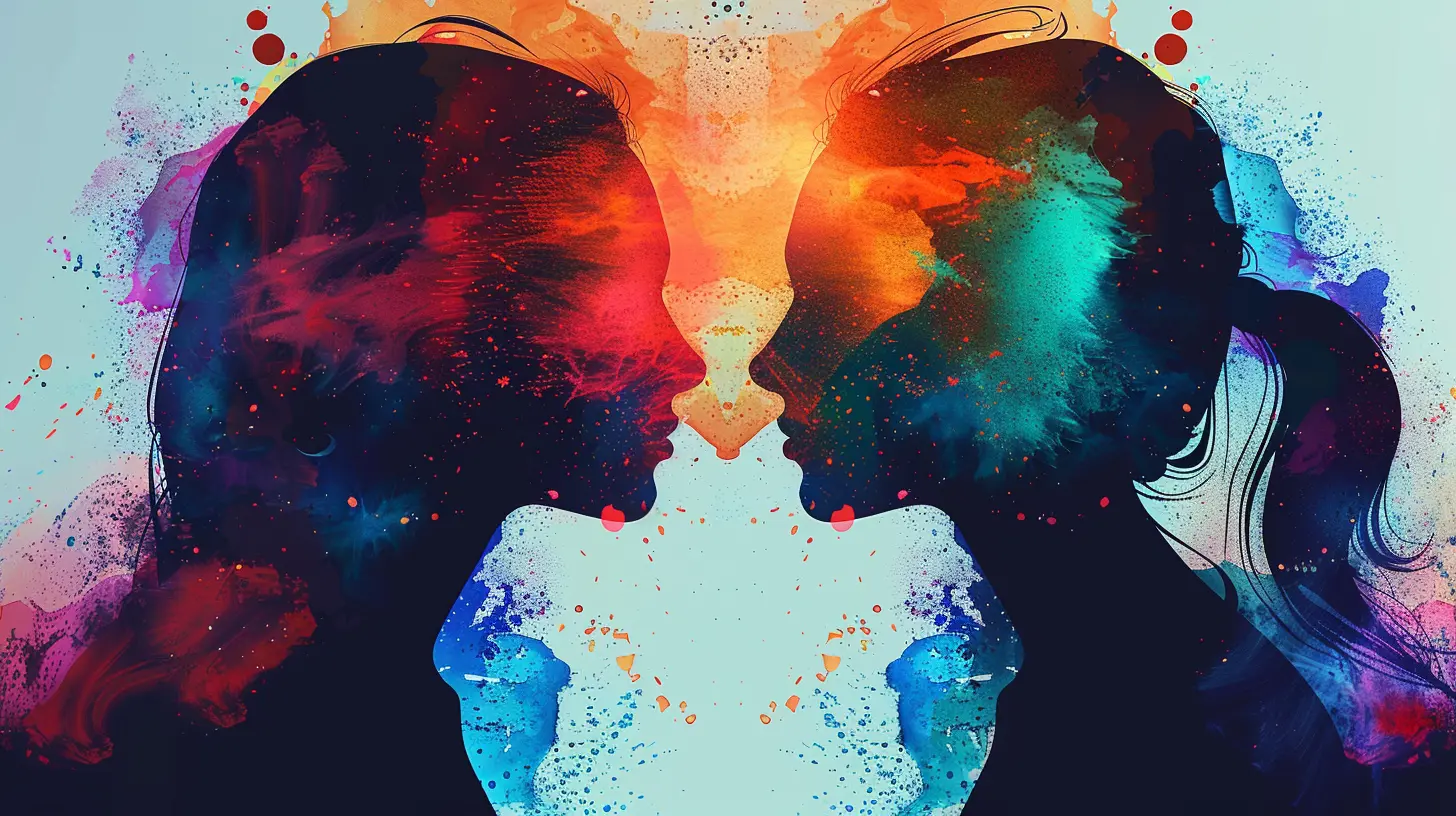The Influence of Personality Types on Relationship Compatibility
9 August 2025
Have you ever wondered why some couples effortlessly click while others seem to constantly clash? You might chalk it up to shared interests, values, or even just good timing. But there's something else at play beneath the surface—our personalities.
Yep, those quirky, complex, and sometimes confusing traits that make us who we are. They silently shape how we communicate, how we deal with conflict, and how we express love. Understanding how different personality types influence relationship compatibility can be a total game-changer—whether you're dating, married, or somewhere in between.
So, grab a cup of coffee, get comfy, and let’s dive into how these personality puzzle pieces fit together in the world of relationships.
What Are Personality Types, Anyway?
Before we go too deep, let’s clear up what we mean by "personality types." There are many ways to define and categorize them, but one of the most popular and widely accepted models is the Myers-Briggs Type Indicator (MBTI).This system breaks personalities down into 16 types based on four dichotomies:
- Introversion (I) vs. Extraversion (E)
- Sensing (S) vs. Intuition (N)
- Thinking (T) vs. Feeling (F)
- Judging (J) vs. Perceiving (P)
So, someone might be an INFJ, ESTP, or any of the other 14 combinations. Even if you’re not a fan of labels or personality quizzes, this framework can offer valuable insights into how people tick—and how they gel (or don’t) with others.
How Personality Impacts Relationship Dynamics
Communication Styles
Let’s be real—communication is the glue holding all relationships together. Now imagine an introvert partnered with an extravert. One wants deep, meaningful conversations in a quiet setting. The other? They’re energized by a buzzing room and love to think out loud.Neither is wrong. But without awareness and adaptation, this difference can lead to misunderstandings or frustration.
On the flip side, two introverts might love their quiet time but struggle with bringing up tough conversations. Two extraverts may talk a lot but miss the mark on listening deeply.
Knowing your (and your partner’s) communication style helps you meet each other halfway, and that makes all the difference.
Emotional Expression
Some people wear their hearts on their sleeves. Others guard their emotions like a dragon protecting treasure. Thinkers (T) may approach relationship issues with logic, while Feelers (F) may dive headfirst into emotion.Put a Thinker and a Feeler together and you might get scenes straight out of a soap opera—one person trying to fix the problem logically while the other just wants empathy and validation.
Understanding this contrast can reduce resentment. It encourages both partners to shift gears and consider the other’s emotional language.
Conflict Resolution
When it comes to disagreements, our personality types heavily influence how we respond. Judging types often want resolution ASAP—a plan, a solution, closure. Perceivers, on the other hand, might prefer to sit with it, give it time, and keep things open-ended.This mismatch can be a recipe for disaster—or a powerful opportunity to learn patience and find balance.
It’s not about eliminating conflict (spoiler: that’s impossible). It’s about learning to navigate it together.
Opposites Attract—or Do They?
You’ve probably heard the phrase “opposites attract.” And sure, it makes for a great movie plot. But in real life, does it work?The truth is a bit more nuanced.
Strengths and Blind Spots
Opposing personality traits can complement each other beautifully. For example, a detail-oriented Sensing type might keep things grounded, while an intuitive partner brings visionary ideas to the table. Together, they see the forest and the trees.Similarly, a Judging personality brings structure and routine, while a Perceiving partner adds spontaneity and flexibility. That combo can create a life that’s both exciting and stable.
But it’s not always rainbows and butterflies. These differences can also trigger friction if not navigated carefully. The key? Respect and curiosity. Instead of thinking, “Why do they do it like that?” try, “What can I learn from their approach?”
Birds of a Feather
On the flip side, some people crave similarity more than contrast. Two Feelers may share a rich emotional connection. Two Introverts may find peace in shared silence. Two Judging types may run the tightest ship in town.Shared traits can make things feel easier—like speaking the same language. But even here, the risk is becoming too much alike, leading to stagnation or overlooked blind spots.
So, whether it’s opposites attracting or like attracting like, success boils down to adaptability, communication, and mutual growth.
The Most Compatible Personality Combinations (According to Psychology)
Okay, so you might be wondering—are there “perfect” pairings?Well, no match is totally perfect, but research and personality theory suggest that certain combinations tend to vibe more naturally. Here are a few examples:
INFJ + ENFP
The introverted INFJ brings depth and empathy, while the extroverted ENFP brings warmth and spontaneity. This duo balances each other and often shares meaningful goals.ESTJ + ISFP
ESTJs are organized and assertive, while ISFPs are gentle and artistic. It’s a work-in-progress kind of relationship, but one that teaches growth and compromise.INTJ + ENTP
This powerhouse combo thrives on intellect and banter. The INTJ is focused and strategic, while the ENTP loves exploring new ideas—a balance of vision and innovation.Remember, these aren't rules. Countless successful couples break every "compatibility" guideline out there. What matters most is how you show up in the relationship and how willing you both are to understand each other.
Why Self-Awareness Is the Real Secret Sauce
We often focus on finding the “right” partner. But here’s a twist—being the right partner matters just as much.Knowing your personality type helps you understand your triggers, needs, and communication style. It’s like having a user manual for yourself—and for your partner.
More than that, it allows you to take ownership of your role in the relationship. That’s empowering. It shifts the mindset from “they just don’t get me” to “how can I help them understand me better?”
And that, my friend, changes everything.
How to Use Personality Insights to Strengthen Your Relationship
Here’s where the real magic happens. Let’s talk about how you can use personality insights in practical ways.1. Take a Personality Test (Together)
It sounds corny, but it’s eye-opening. Sit down with your partner, take the test, and discuss the results. Laugh at the spot-on descriptions and learn from the differences. It’s a fun and intimate way to spark real conversations.2. Develop a Shared Language
If you know your partner is a Thinker, you’ll understand why they're not always emotionally expressive. If they’re a Perceiver, you’ll stop being surprised when they change plans last minute.It’s like having a translation key for their behavior. Less confusion, more empathy.
3. Practice Compassion Over Correction
It’s tempting to try to “fix” traits that clash with your own. But here’s the truth—we all have quirks. The goal isn’t to change each other but to appreciate each other. Let your differences be sources of strength, not stress.4. Celebrate Your Growth
Over time, you’ll both evolve. Your personalities may not change drastically, but your emotional intelligence can grow. Celebrate the small wins—an argument handled better, a moment of vulnerability, a shared laugh after a tough day.Growth is the heartbeat of any thriving relationship.
Final Thoughts: Love Takes All Kinds
At the end of the day, love isn’t about finding someone who checks every box. It’s about connection, respect, curiosity, and growth.Personality types give us a lens—a helpful, insightful one—but they don’t write our love stories. We do.
So, whether you’re a classic INFJ or a bold ESTP, whether your partner is your mirror or your opposite, remember this: the magic happens when two people commit not only to loving each other, but to understanding each other.
And that, my friend, is where compatibility turns into something truly beautiful.
all images in this post were generated using AI tools
Category:
RelationshipsAuthor:

Janet Conrad
Discussion
rate this article
1 comments
Stephen McGuffin
Thank you for this insightful article! It beautifully highlights how understanding personality types can enhance relationship compatibility. I appreciate the practical tips provided for applying these concepts in real life, making it valuable for anyone looking to improve their connections.
September 1, 2025 at 2:53 AM

Janet Conrad
Thank you for your kind words! I'm glad you found the article helpful and the tips practical for enhancing relationships.


